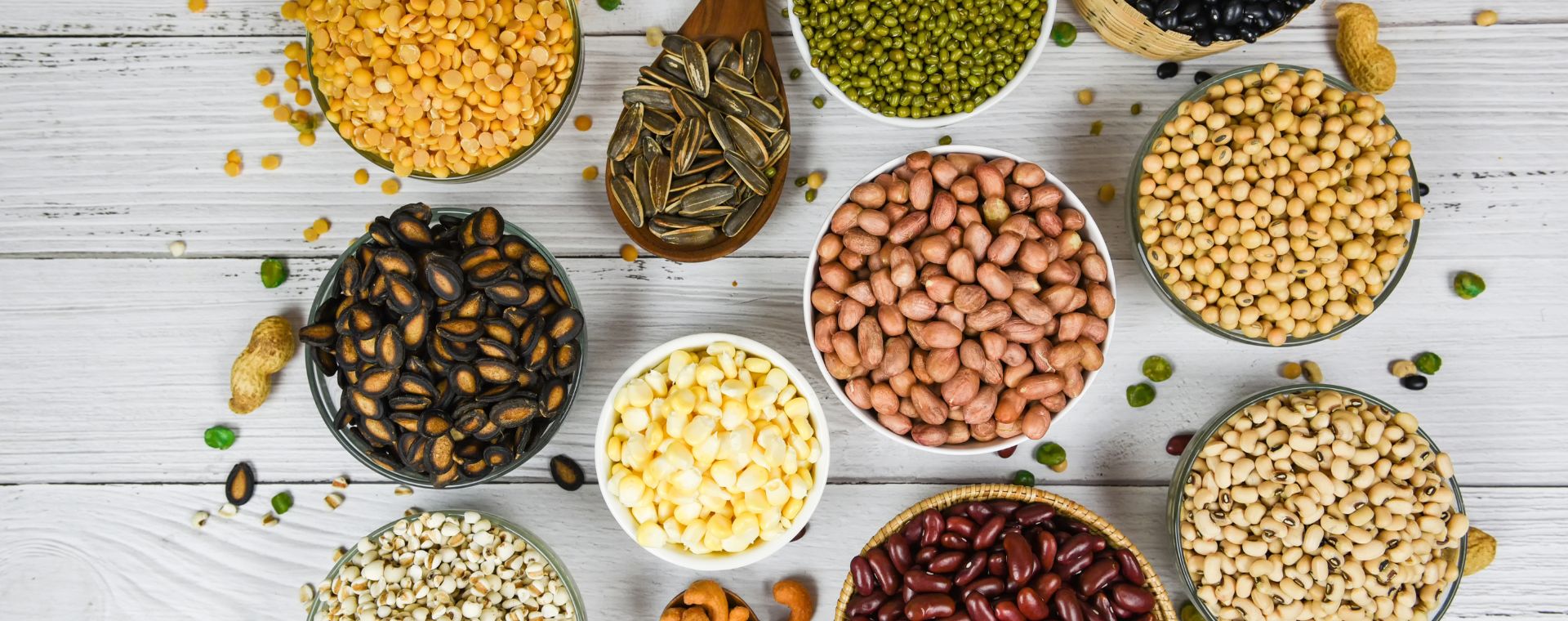
Given the rising costs of living it’s understandable that consumers are looking to products that satisfy them for longer and give them all their nutrients in one go.
Whilst good value for money reigns supreme when it comes to trying new food and drinks, half of UK consumers say they are motivated by health benefits.
In addition to reductions in sugar, calorie and salt content, health benefits that add to physical and mental wellbeing are becoming more desirable. However, recent research from our Grocery Eye report showed that consumers are feeling unhealthier compared to previous years, with over a third stating this was due to the cost of healthy food.
Savanta’s innovation team explore the health benefits consumers are seeking out….
More bang for your buck
Given the rising costs of living it’s understandable that consumers are looking to products that satisfy them for longer and give them all their nutrients in one go.
Around three-quarters of consumers want products with high protein and fibre content, and a similar proportion are looking for vitamin-rich products.
Around six in ten look for products that are nutritionally complete and two-fifths look for products that are nutrient-dense.
Not only beneficial for consumers’ wallets, but nutrient-dense and protein-packed foods (such as seaweed) are considered more plant-friendly. A recent article from the Financial Times indicates seaweed farms are gaining interest among investors as a way to free up agricultural land, to develop purely seaweed-based products, or combined with existing meat products for the more hesitant consumers.
Brands such as Mara Seaweed, who sustainably harvest their seaweed around the coasts of Scotland and Ireland, have focused on the distinctive seasoning seaweed can bring to a dish alongside nutritional benefits, with their range of flavour-enhancing seaweed flakes and strips.
View this post on Instagram
Meanwhile, Asian-inspired brands such as Kelly Love’s and Itsu have brought seaweed to the snack aisle, with their ranges of nori strips and crisps which offer a lighter alternative to traditional crisps and snacks.
Gut feeling
Interest in the gut microbiome has really taken off in the last few years and is certainly hitting the mainstream, with TV shows like “Know Your Sh!t” tackling taboos around stomach issues and bringing awareness to ways in which consumers can improve their gut health.
Over half of consumers are interested in health claims related to aiding digestion, and two-fifths look for pre-or pro-biotic contents.
There is still room to grow and improve awareness, education and consideration in this space though, with just one in ten consumers anticipating purchasing fermented foods in the next 12 months, with research heralding these products as gut health heroes.
New brands such as Bio & Me, co-founded by Dr Megan Rossi, the Gut Health Doctor, have hit shelves recently with ranges of prebiotic cereals and yoghurts to aid gut health. And established brands, such as Yeo Valley, have successfully extended their existing yoghurt range with their range of Kefir, a fermented yoghurt, known to improve the diversity of bacteria in the gut.
View this post on Instagram
Natural highs
Benefits to mental well-being is also an increasingly desirable consideration . Six in ten consumers are interested in claims which aid sleep, whilst over a third are interested in products that claim to aid cognition.
We see Adaptogens (plant substances that can help our bodies manage stress) and Nootropics (plant substances that can improve cognitive function) showing the greatest increases in consideration in the next year.
One way brands are entering this space is through supplements, such as the Herbtender, providing supplements for energy, focus, sleep and reduced stress. These contain natural occurring ingredients such as ginseng, cordyceps and reishi to revive and refresh the mind and body.
@theherbtender An apple a day might keep the doctor away but mushrooms are way better… 🍄🤚😄 We’re proud to be part of #p#projecteartht @selfridgesfood — a vision to reinvent retail, change the way we shop and challenge mindsets.🧠✨ Check out the mushroom edit at @theofficialselfridges, featuring some incredible adaptogen and nootropic brands to help with immunity, cognitive health, energy and stress 🍄❤️ #s#selfridgese#ecos#sustainabilitym#mushroomsa#adaptogensm#medicineh#herbalc#compostablew#wellnesse#energy ♬ original sound – TheHerbtender
Adaptogenic, natural drinks are offering an alternative to alcoholic beverages, with benefits to unwind and relax without the hangover. Brands such as Traquini and Trip, infused with adaptogens such as CBD oil and chamomile, market themselves as offering the relaxing benefits of alcohol without the negative effects.
Celebrities are also getting on the trend, with Sex Education’s Gillian Anderson launching her Adaptogenic drinks brand, G Spot, with a range promising to energise, support immunity and calm the mind through natural ingredients.
The use of adaptogens and nootropics isn’t all new, with well-established herbal tea brands, such as Pukka, utilizing the power of natural ingredients for some time, such as the use of Ashwagandha to reduce stress in some of their tea blends. However, given the rising interest in Adaptogens and Nootropics how these brands communicate these ingredients is important to reach potential new audiences.
What does this mean for product innovation?
- For existing brands, understand your right to play in these spaces – Yeo Valley is a great example extending from Yoghurt to Kefir. Alcohol brands may consider sizing the market and exploring the ideation of range extensions in the low and no-alcohol space including adaptogenic properties which consumers are looking towards as alcohol alternatives.
- Be a leader not a follower – early ideation research is critical to identify gaps within your category and take the lead in establishing your brand as the leader in the category for emerging trends.
- Communicating with empathy – lots of these trends aim to support consumers, with their physical or mental health, and in some cases financially. Therefore, messaging needs to speak to these needs. With new or niche ingredients, on-pack messaging and wider communication to educate consumers is vital to increase trust and familiarity.




